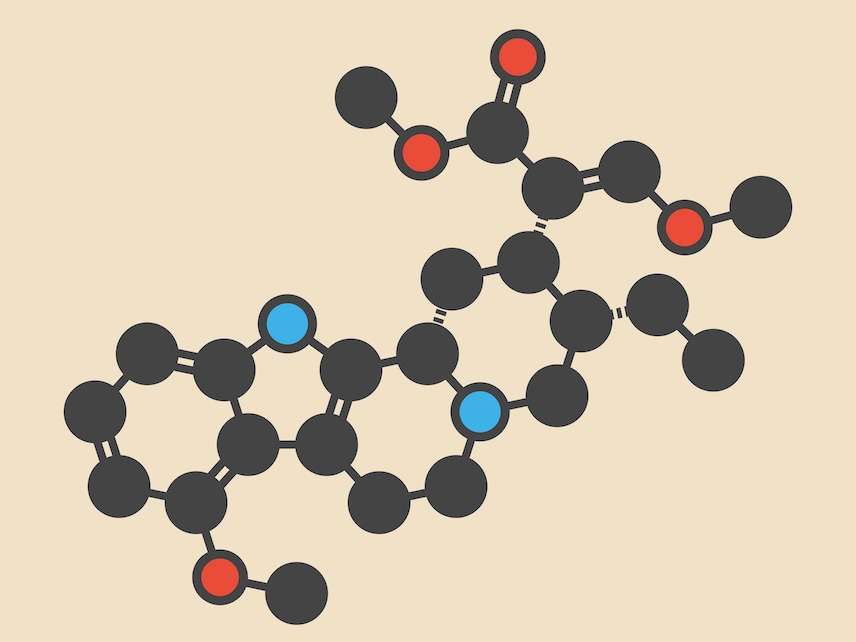The Federal Government Is Trying to Ban Kratom (Again)
So much for "everything which is not forbidden is allowed."

A year after the Drug Enforcement Administration attempted to ban the plant-based drug kratom, only to back down when users claimed it helped them with opioid withdrawal symptoms, the Food and Drug Administration (FDA) announced on Monday that is has begun blocking the importation of kratom products.
"To fulfill our public health obligations, we have identified kratom products on two import alerts and we are working to actively prevent shipments of kratom from entering the U.S.," FDA Commissioner Scott Gottlieb announced in a blog post today. His agency "has detained hundreds of shipments of kratom," Gottlieb adds. "We've used our authority to conduct seizures and to oversee the voluntary destruction of kratom products. We're also working with our federal partners to address the risks posed by these imports."
Kratom is native to Southeast Asia and part of the coffee family. It works as a mild stimulant in low doses, and as a sedative in high doses. Users buy it as a nutritional or herbal supplement, and it has some rather well-known adherents in the internet community, including podcaster Joe Rogan and filmmaker Christopher Bell, who used kratom to ween himself off prescription painkillers after an injury.
Gottlieb claims that the supplement is dangerous and has no demonstrated medical value:
Calls to U.S. poison control centers regarding kratom have increased 10-fold from 2010 to 2015, with hundreds of calls made each year. The FDA is aware of reports of 36 deaths associated with the use of kratom-containing products. There have been reports of kratom being laced with other opioids like hydrocodone. The use of kratom is also associated with serious side effects like seizures, liver damage and withdrawal symptoms.
But as Reason's Jacob Sullum reported last year, several hundred reports of adverse reactions to kratom are a miniscule number compared to other drugs:
According to the U.S. Centers for Disease Control and Prevention, alcohol causes about 88,000 deaths a year in this country, while 28,000 deaths were attributed to heroin and opioid painkillers in 2014. Kratom looks pretty benign by comparison.
Another point to keep in mind: "Deaths associated with kratom" are not necessarily caused by kratom. "Kratom is considered minimally toxic," noted a 2015 literature review in the International Journal of Legal Medicine. "Although death has been attributed to kratom use, there is no solid evidence that kratom was the sole contributor to an individual's death."
As further proof of kratom's dangers, the DEA noted that "U.S. poison centers received 660 calls related to kratom exposure" from 2010 through 2015, an average of 110 a year. By comparison, exposures involving analgesics accounted for nearly 300,000 calls in 2014, while antidepressants and antihistamines each accounted for more than 100,000.
In his announcement, Gottlieb revealed that the DEA asked the FDA to conduct a medical review of kratom, which is the first step in the traditional process of adding a subtance to the government's "schedule" of restricted drugs. While he encourages "those who believe in the proposed medicinal uses of kratom…to conduct the research that will help us better understand kratom's risk and benefit profile," his postion right now is that "there are currently no FDA-approved therapeutic uses of kratom."
Based on Gottlieb's tone, I expect the FDA will work with the DEA to put kratom in Schedule I—the most tightly regulated category of drugs—until researchers provide evidence of its therapeutic utility. A full clinical trial of the drug would likely take a decade to complete and cost tens of millions of dollars. In the meantime, moving the drug to sSchedule I would criminalize its purchase, use, sale, production, and importation.
For more on kratom, here's filmmaker Chris Bell talking to Reason.tv about how the plant changed his life:


Show Comments (25)